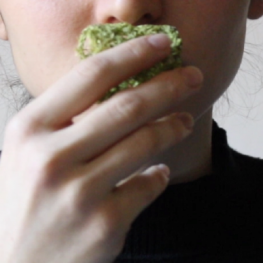Acquiring knowledge about materials and processes through materials exploration is a fundamental step in the roadmap of Textile Designers’ practice and education. The most successful way to get tacit knowledge about advanced textiles and to foster creativity for further development and innovative solutions is to engage in an experimental and goal-free exploratory practice. We call this approach to hands-on early stages exploration,
Material Tinkering. Material Tinkering is the art of manipulating the material creatively for discovery and learning. By establishing direct contact with matter, textiles design practitioners and students learn by doing and educate their sensitivity to the sensory and aesthetic qualities of the materials. The application of this experimental approach to matter allows them to discover the opportunities that unconventional – often hidden – resources, tools and processes – often inspired by other fields – may offer. As a result, they produce novel materials and textiles of their invention, which often have innovative features and communicate the designer’s unique vision.
Finally, it allows moving from the conventional practices of selection and application of existing materials and textiles, encouraging a paradigm shift in the invention of new materials and processes. The OER uses case studies from educational activity applying the tinkering approach to self-produced fibres and advanced textiles. This method fosters students’ creativity and educates them to understand, evaluate, and design the experiential, expressive, and sensorial characteristics of materials. In conclusions, the lecture suggests strategies to facilitate Material Tinkering.
Keywords: Exploration, Hands-on, Creativity, Experiential and Active learning, Textile







